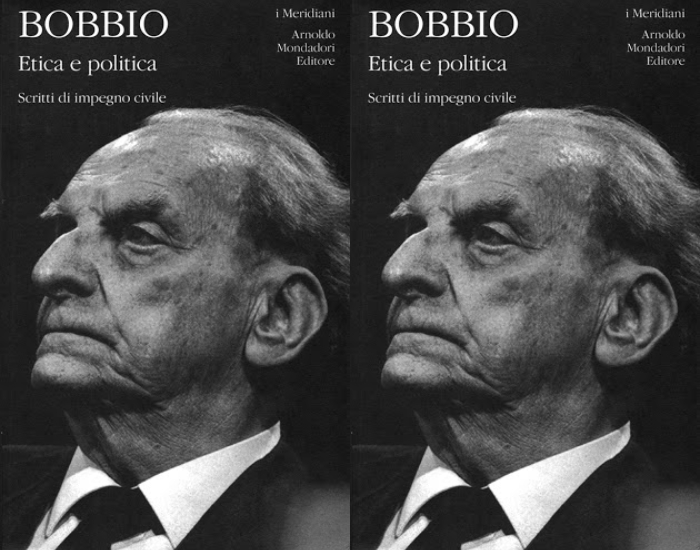Political ethics is the ethics of results. But of all the results?

The Notepad of Michael the Great
Political ethics is the ethics of results and not of principles. But of all the results? If we want to distinguish result from result – Norberto Bobbio observed – is it not necessary once again to go back to the principles? Can the good result be reduced to immediate success, perhaps like the one received (not only in Italy) by xenophobic campaigns? There is a verse from the "Bellum Civile" of the Latin poet Lucano which reads: "Victrix causa deis placuit / Sed victa Catoni". Its meaning is: Caesar's cause won because it was supported by the gods, while Cato the Uticense lost for having espoused the cause of republican freedom. Does this mean that the losers are always wrong just because they are won? But can't today's winner be tomorrow's winner?
THE GOOD LIE OF TOMMASO D'AQUINO
Thomas Aquinas called it "pium mendacium", the good lie. I make you believe the false, but for a good purpose: a morally legitimate choice, among others, for Benedetto Croce, Dietrich Bonhöffer and Paul Feyerabend. Another tradition, which refers above all to Augustine and Kant, holds instead that lying is always and in itself an evil, even when the purpose is noble or altruistic. In fact, it violates that demand and expectation of truth which is the basic requirement of an ethics of communication.
THE NEW INQUISITION
On 20 July 1542 the new Inquisition was established, with the main task of countering the spread of the Protestant heresy. The Holy Office played a fundamental role in the reorganization of the Church of Rome, responding to the needs of control, punishment, education of the social and ecclesiastical bodies. Heir to the Spanish experience of verifying the real conversion of Muslims and Jews, the Inquisition endeavored to drop the mask with which the Italian Nicodemites tried to hide (the term Nicodemite, coined by Calvin, derives from Nicodemus, the Pharisee who, according to the Gospel of John, at night he went secretly to listen to Jesus, while during the day he simulated a full adherence to his sect). Faced with the harshness of inquisitorial practices, the Nicodemites reacted by elaborating a singular ethical statute, in which simulation and dissimulation of potential vices become authentic virtues, essential for every man of the court and deeply rooted in the cardinal virtue of prudence.
THE DISENCHANTED INTELLECTUAL
Emblem of the perfect idler, in the literary tradition of the nineteenth century the “flâneur” represents the intellectual who spends his time wandering aimlessly, contemplating with disenchantment the masses that move in the urban space. In short, he is an aristocrat of the spirit, a bourgeois exempted from the struggle for survival, a product of the industrial revolution, as Walter Benjamin had acutely guessed. His modern heir is considered the “cyberflâneur”, the solitary surfer of the Net who looks with detachment at the multiform spectacle of virtual reality. For this reason, every time I see depressing backyard political brawls on the web rather than a serious confrontation of ideas, I recite the splendid secular prayer of the German illuminist Christian Woolf: “Praise be to heaven for loneliness. Leave me alone. Heaven be praised for the loneliness that has removed the pressure of the eye, the stress of the body and every need for lies and phrases ”.
THE "SILENT MINORITY" OF FLAIANO
“I belong to the silent minority. They are one of those few who have nothing more to say and are waiting. What? That everything is clarified? It is unlikely. Age has brought me the certainty that nothing can be clarified: in this country I love there is simply no truth. Countries much smaller and more important than ours have their own truth, we have infinite versions of it. The causes? I leave the task of indicating the causes to historians, sociologists, psychoanalysts and round tables, I suffer the effects. And with me a few others, because almost everyone has a solution to propose to us: their truth, that is, something that does not conflict with their interests. An art historian should also be invited to the round table to tell him what influence the Baroque may have had in our psychology. In fact, in Italy the shortest line between two points is the arabesque. We live in a network of arabesques ”(Ennio Flaiano, Corriere della Sera , 3 September 1972).
PRIMARIES AND CIVIL SOCIETY
“On and off, the primaries have been glorified or abused by politicians and commentators. Today it often happens that even analysts normally inclined to extol the virtues of "civil society" and participation find themselves considering it preferable that party leaders decide the candidates for mayor, always and in any case. I emphasize that it is from the primary to the mayor, because not all primary are the same. […] The open primaries wanted and can be a conscious "transfer of sovereignty" of the leading groups to public opinion in the city, even to what the parties normally do not intercept, and at the same time the tool to institutionalize a virtuous circuit of participation, involvement, choice of the most popular candidates.
It is obvious that the two are or fall together. You participate more willingly where an effective transfer of sovereignty allows for real competition between different profiles. On the contrary, in this phase, the primaries are interpreted as a way to legitimize decisions that the leaders did not have the courage to take or that they could not have taken in the party bodies "(Salvatore Vassallo," The good primaries are a sale of sovereignty of party leaders to voters ”, newsletter of the newspaper Domani , 20 June 2021).
This is a machine translation from Italian language of a post published on Start Magazine at the URL https://www.startmag.it/mondo/etica-politica/ on Sat, 26 Jun 2021 05:12:42 +0000.
